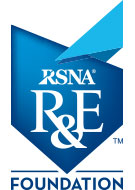Your Donations in Action: Richard Ha, MD
Using Breast MRI to Analyze a Progesterone Receptor Modulator That Could Reduce Breast Cancer Risk


Ulipristal acetate (UPA), is a selective progesterone receptor modulator (SPRM) being evaluated for its potential as a daily contraceptive. UPA blocks the action of progesterone in the breast and reduces breast cell proliferation in the luteal phase of premenopausal women which may deliver a protective effect against breast cancer.
With his 2016 RSNA Research Scholar Grant, “The Effect of Ulipristal Acetate (UPA) on Breast Cell Proliferation Measured by Ki-67 and Breast MRI BPE and its Potential as a Chemoprevention Agent,” Richard Ha, MD, associate professor of radiology at Columbia University Medical Center in New York, wanted to evaluate the effect of UPA on breast tissue proliferation measured by MRIBPE to determine the potential utility of SPRMs as a novel approach for contraception and breast cancer risk reduction.
Dr. Ha and his colleagues identified women aged 18-39 to participate in the study. Participants, who ovulated during the baseline cycle, underwent a baseline MRI and biopsy between eight and twelve days following the estimated ovulation date. At approximately 76 days after initiating treatment, participants returned for a second MRI and biopsy. Biopsy samples were used to measure Ki-67 proliferative marker. In addition, the team performed breast MRI scans, and using a previously developed computer-generated algorithm, evaluated the degree of BPE using standard BI-RADS criteria and quantitative analysis.
“The effect of a daily 10 mg dose of UPA on breast tissue showed a significant decrease in breast cell proliferation measured by MRI-BPE and Ki-67 in comparison to baseline, and to the effect of a commonly prescribed combined oral contraceptive,” Dr. Ha said. “The study results demonstrate the possibility of using a birth control pill for the dual purposes of contraception and breast cancer risk reduction.”
He also acknowledged the impact of the RSNA grant on his work.
“The R&E Foundation grant has been pivotal in enabling protected research time and allowed me to seek invaluable mentoring from both my internal advisor, Dr. Carolyn Westhoff, and my external advisor, Dr. Peter Eby.”
For More Information
Learn more about R&E Funding Opportunities.
Read last month's Your Donations in Action article.